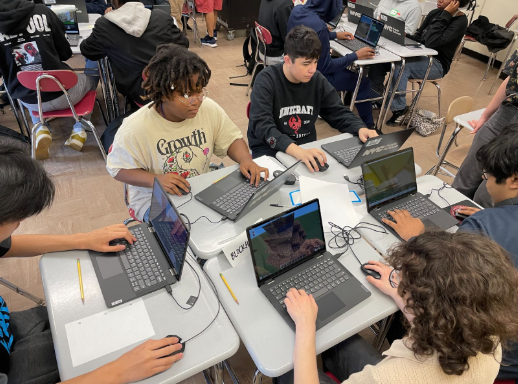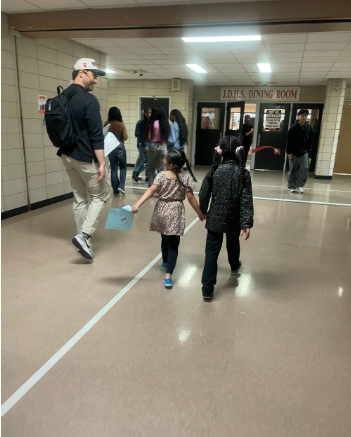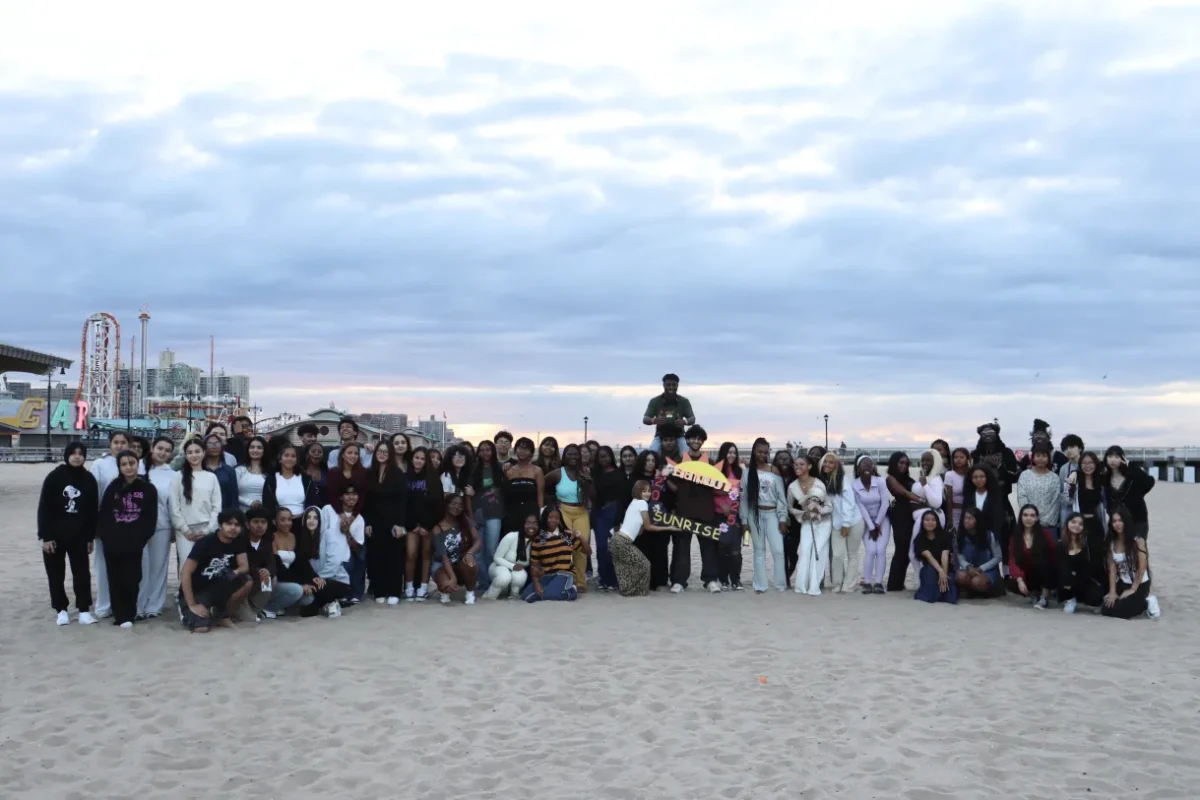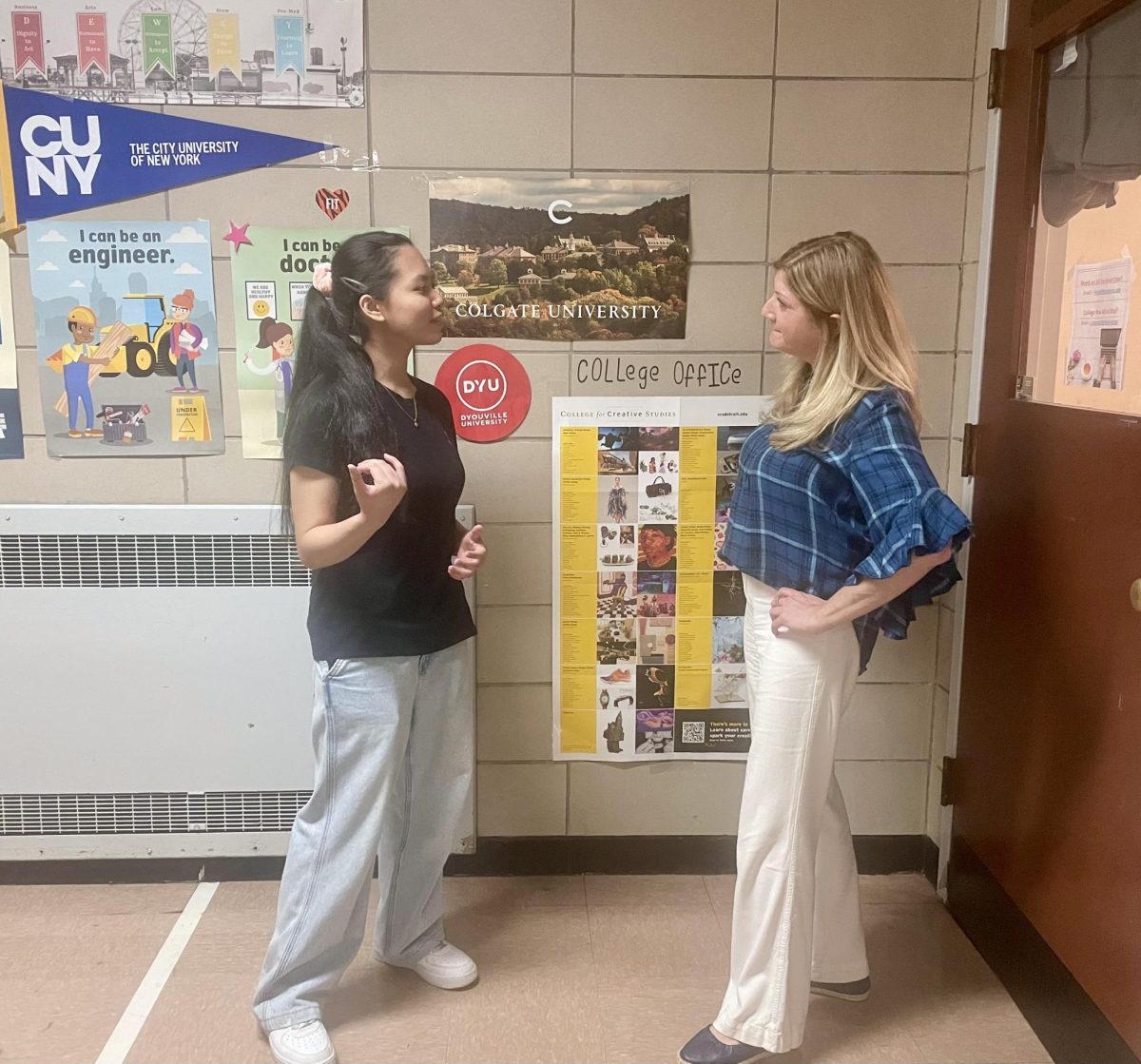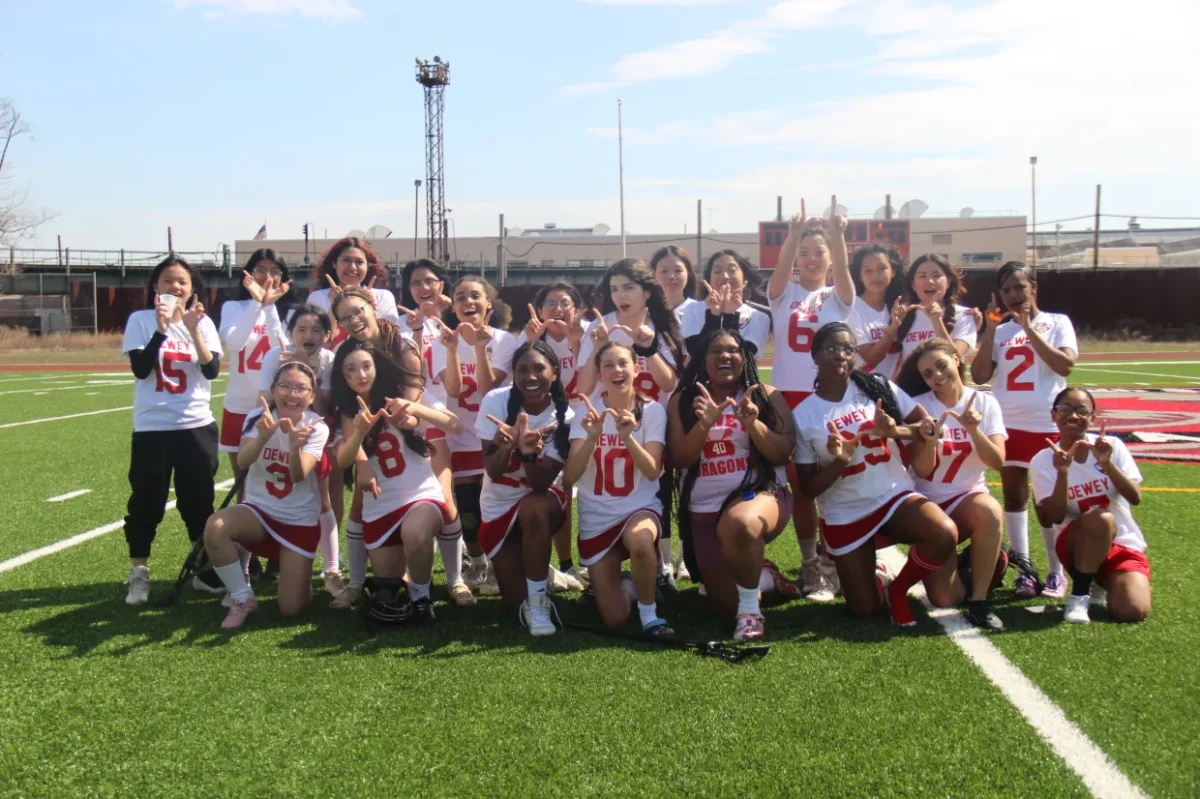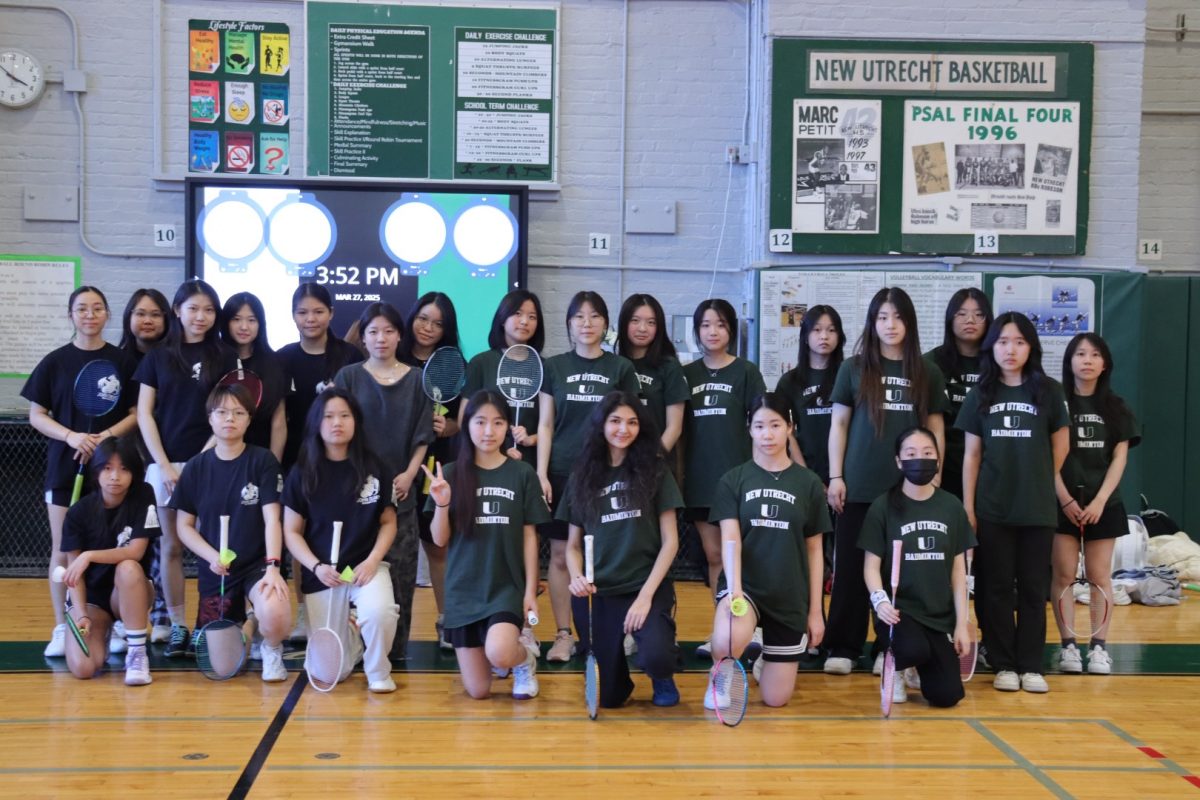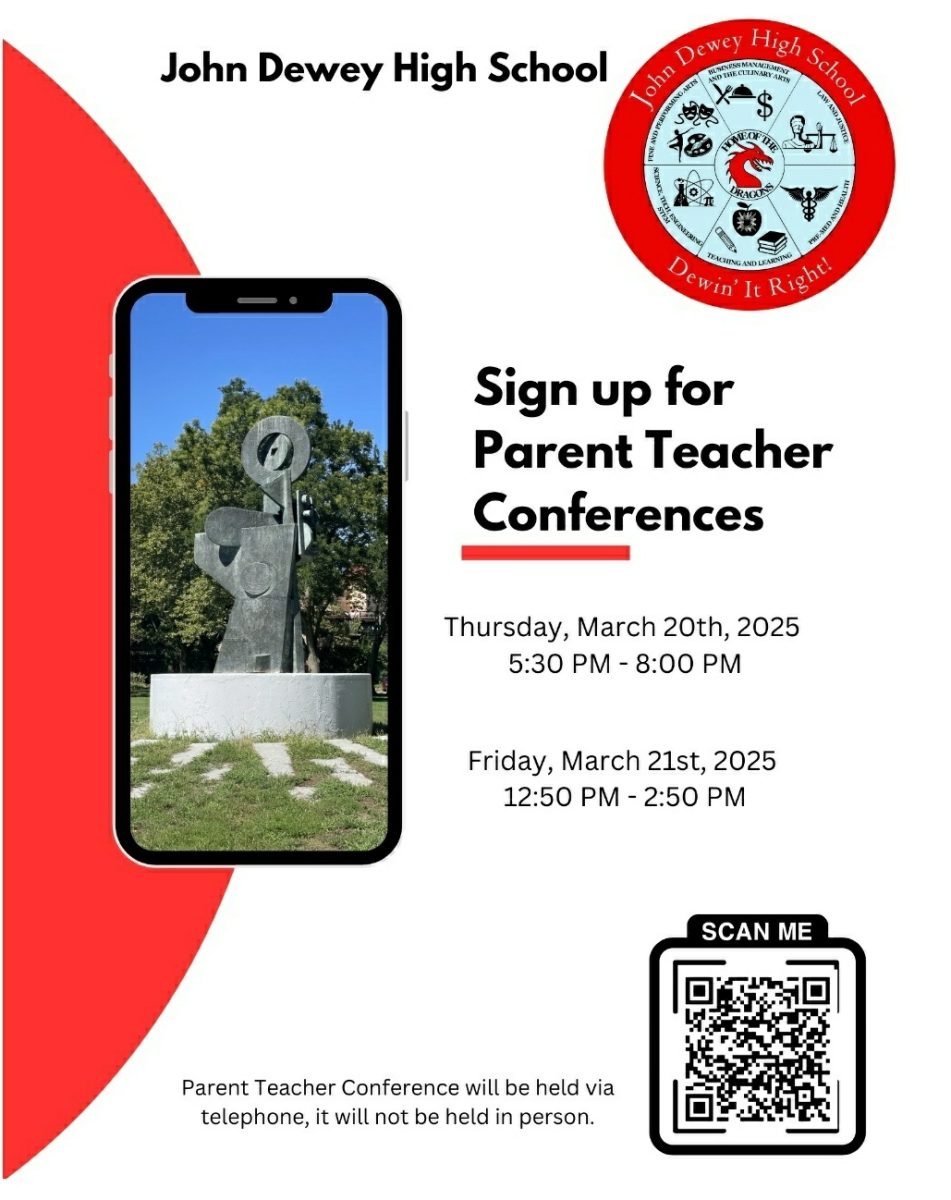As technology proceeds to change the way schools and families communicate, parent-teacher conferences have evolved as well. While in–person meetings allow for face-to-face interaction between parents and teachers, online conferences offer convenience and flexibility. However, which format benefits students the most? At John Dewey High School, students have different opinions on whether in–person or virtual conferences make a greater impact on their academic lives.
“Parent-teacher conferences are important because they help communicate to our parents how we’re doing in class,” junior Nayla Isembert said. “I think online conferences are more effective because parents have busy schedules and can’t always attend in-person. However, background noises and wifi issues can be a problem.”
Isembert highlights that online conferences are convenient for busy parents but also points out challenges that can affect quality of communication. Distractions such as multitasking, and background noises from pets, children, or household devices. Moreover, technical issues like weak internet connections can lead to problems such as slow loading speeds, frozen screens, or being unexpectedly disconnected. Her perspective highlights that while online conferences have their benefits, the problems that come along with it might not be avoidable in virtual meetings.
Valery Lopez, a senior, said, “Teachers need to explain how you act in class and your grades so that parents can have a better understanding. In-person parent-teacher conferences are the best way to convey that,” and added that, “Not only is it easier to communicate, I myself have to translate for my parents.”
For Lopez, in-person conferences are better for clearer communication, especially for students who may need to translate for their parents. While online conferences are an option, they may make it harder to bridge language gaps and provide full understanding.
However, John Dewey High School addresses these challenges by offering translation services through the Talking Points Messaging system, which allows families to communicate in their preferred language. Additionally, the school provides English as a New Language (ENL) classes and bilingual programs to support students and their families.
Jason Tumax, a senior, said, “Parent-teacher conferences give parents a chance to see more than just grades, they learn how we are involved in class, and online meetings make it easier for parents to attend, but in-person meetings are clearer and lets you ask questions while you’re already there.”
Tumax acknowledges the practicality of online conferences, but recognizes in-person meetings as being more effective for communication.
Teachers at John Dewey High School also have differing views on the best format for parent-teacher conferences.
Current Legal Issues teacher Mr. Reynolds prefers in-person meetings, saying “I like to meet parents face to face. I get along with people, so when I call that parent later on, they know exactly who I am and I know who they are. It makes connecting with them easier. I think the impersonal nature of virtual conferences is a little bit difficult, especially when there is a language issue. In person, I can write everything on paper.”
For Mr. Reynolds, face-to-face meetings help build stronger relationships between teachers and parents. He believes that recognizing a familiar face makes future communication better, as parents will be more likely to engage with a teacher they have met in person. He also points out that virtual meetings can be challenging when there’s language barriers, as writing things down in person can make explanations clearer.
Environmental Science teacher Mr. Tropea sees the benefits of both formats, explaining that “Parents may not have time in their work schedule to make it to the school building for a meeting. It’s more about convenience for the parents and that they can schedule a time slot of when to meet with the teachers. I find in-person meetings more effective when discussing student progress. By having a one-on-one conversation in person, the parent can see how much the teacher cares about the work the student has shown or progressed. Sometimes with virtual conferences, phone numbers may not be in service or work, and parents may not have the best connection.”
Mr. Tropea acknowledges that parents’ work schedules might prevent them from meeting in person and explains that parent teacher conferences are primarily about how flexible a parents schedule is and when it’s the best time to meet for them is what matters most. For him, personal in-person discussions allow for deeper conversations about student performance.
The perspectives from John Dewey students, staff, and parents shows that each particular option for Parent Teacher Conferences has their own distinct set of pros and cons. Finding a balance between the two is the key to meeting the needs of students and their families, so that they’re well informed and parents/guardians are up to date on their child’s progress.

